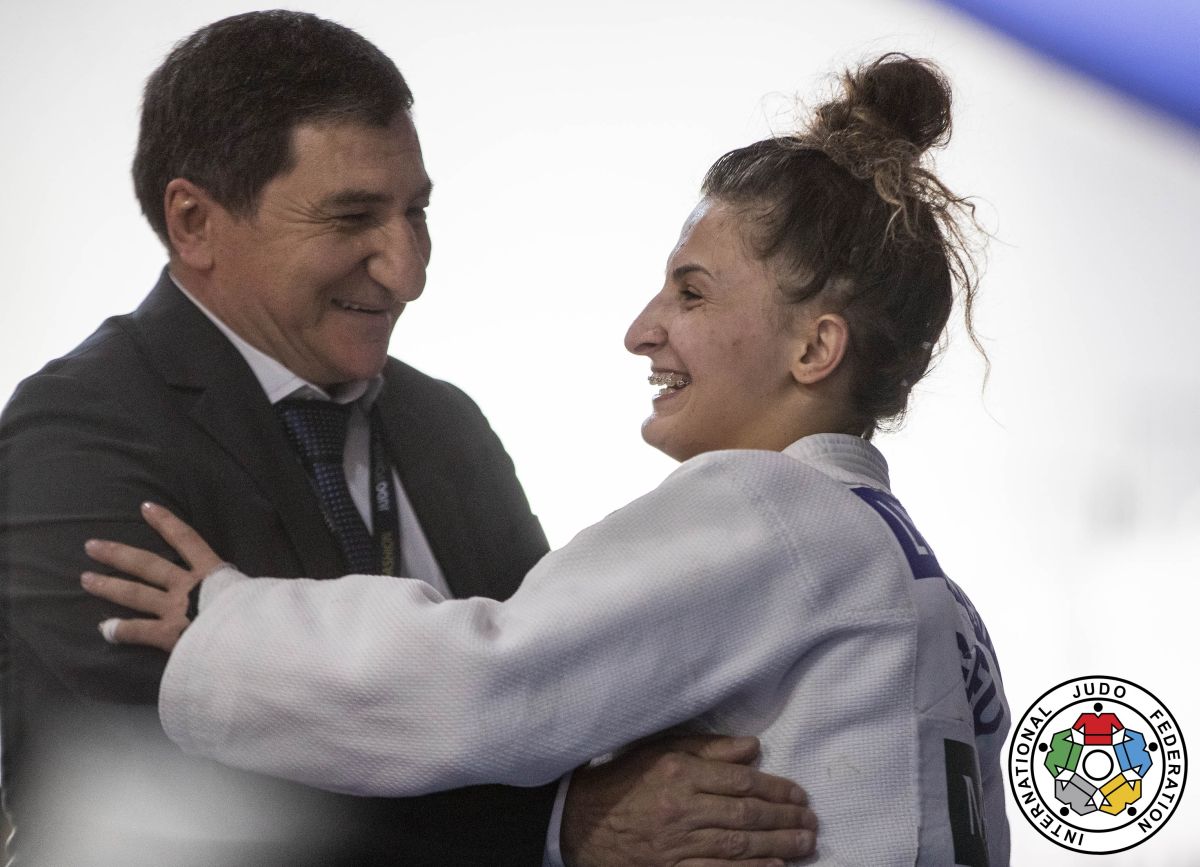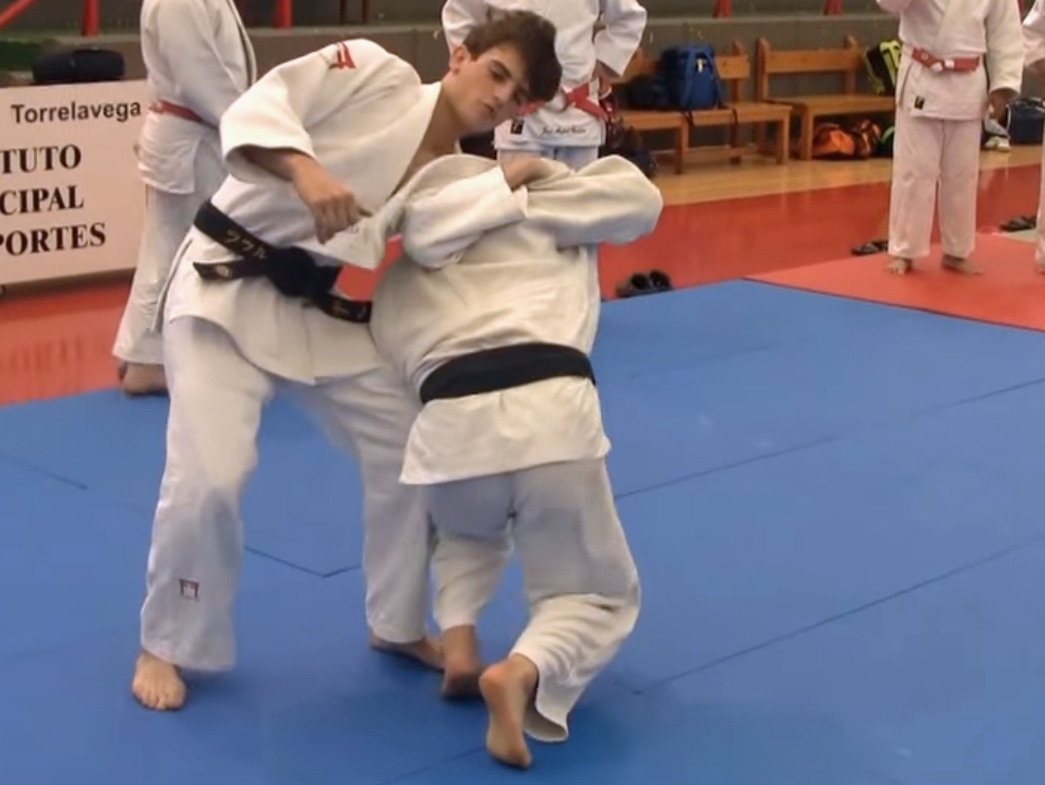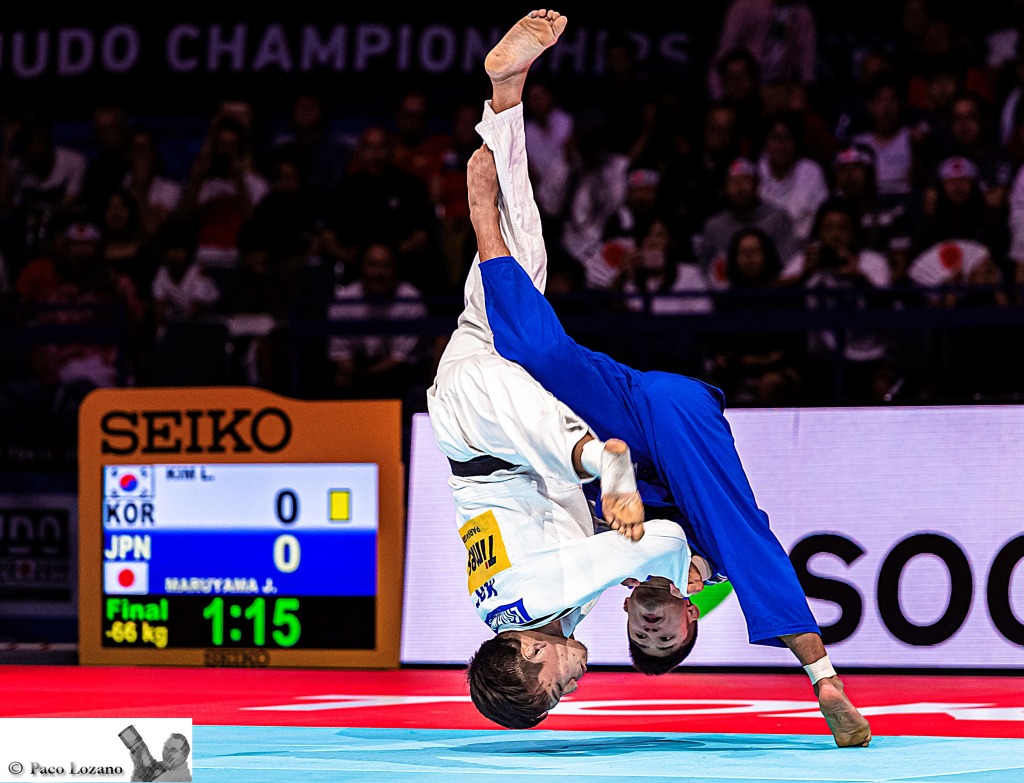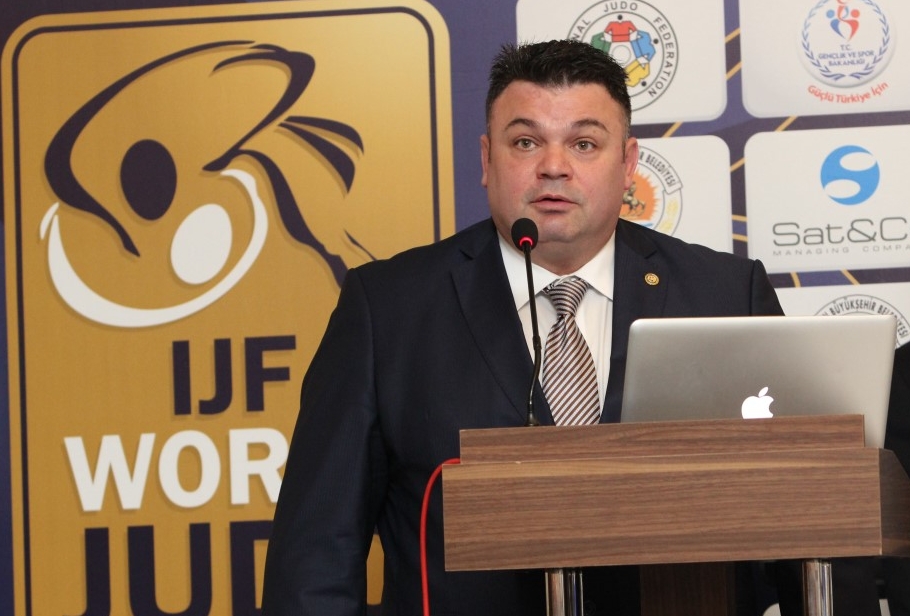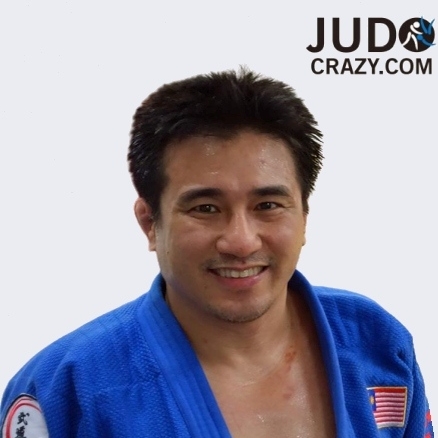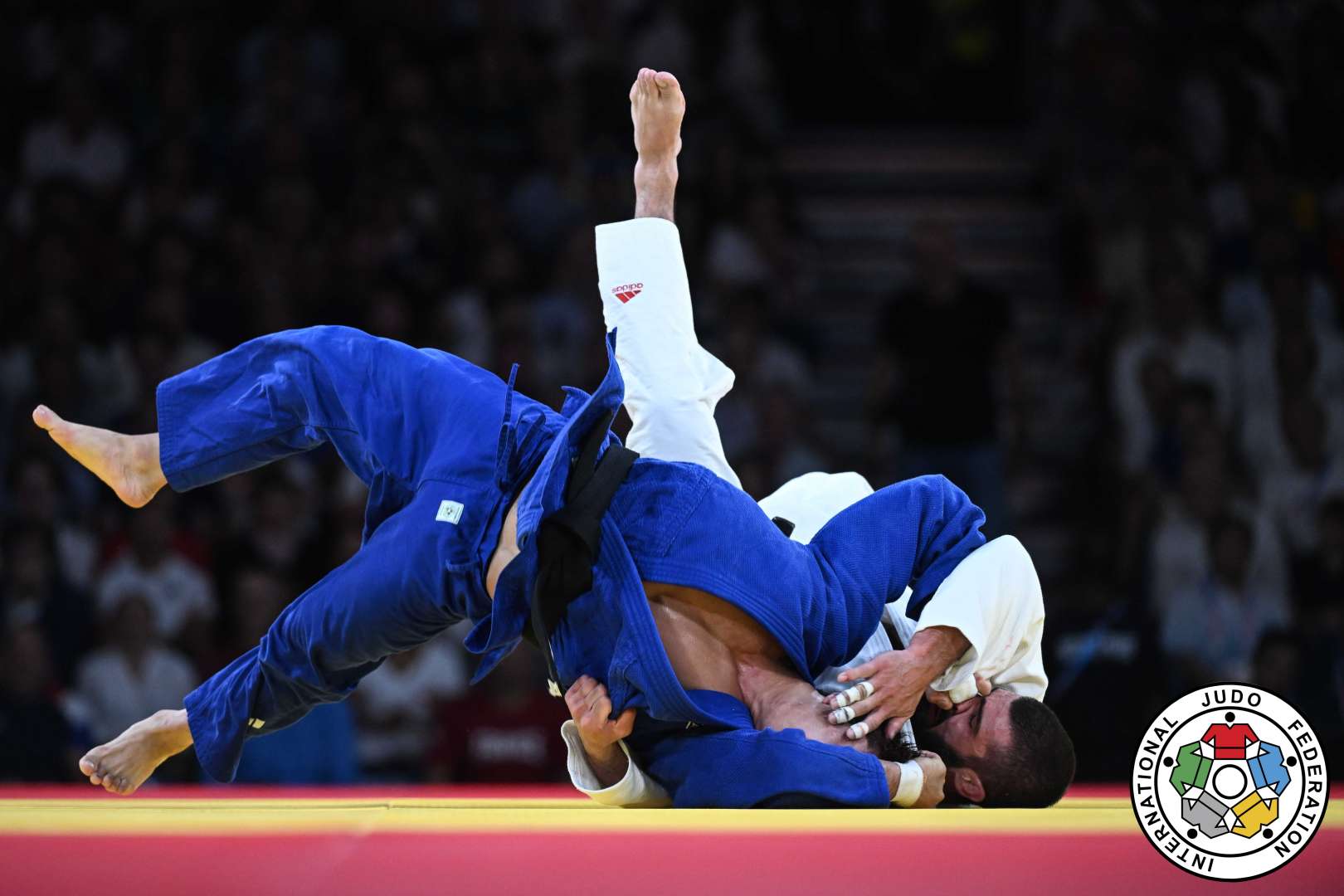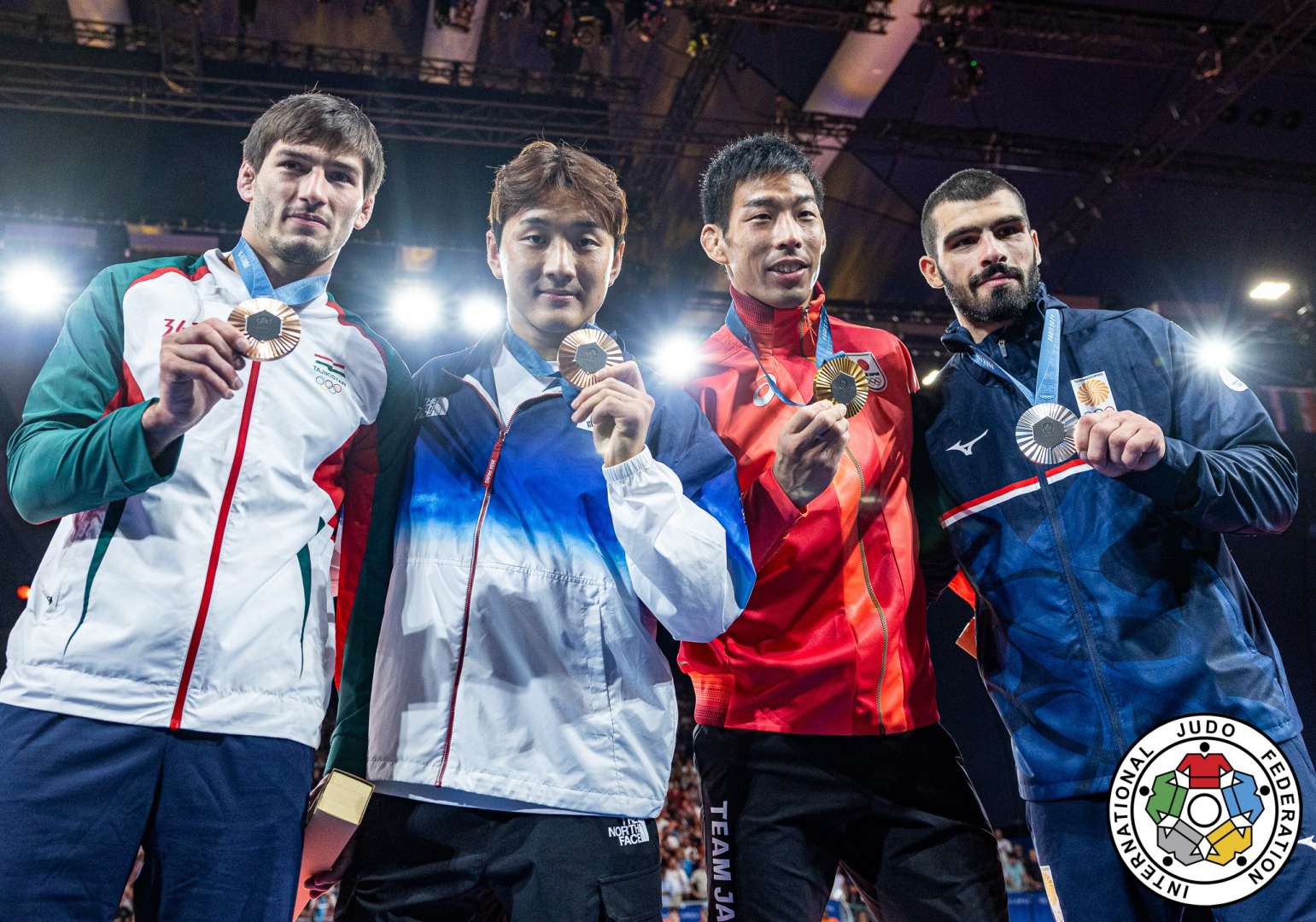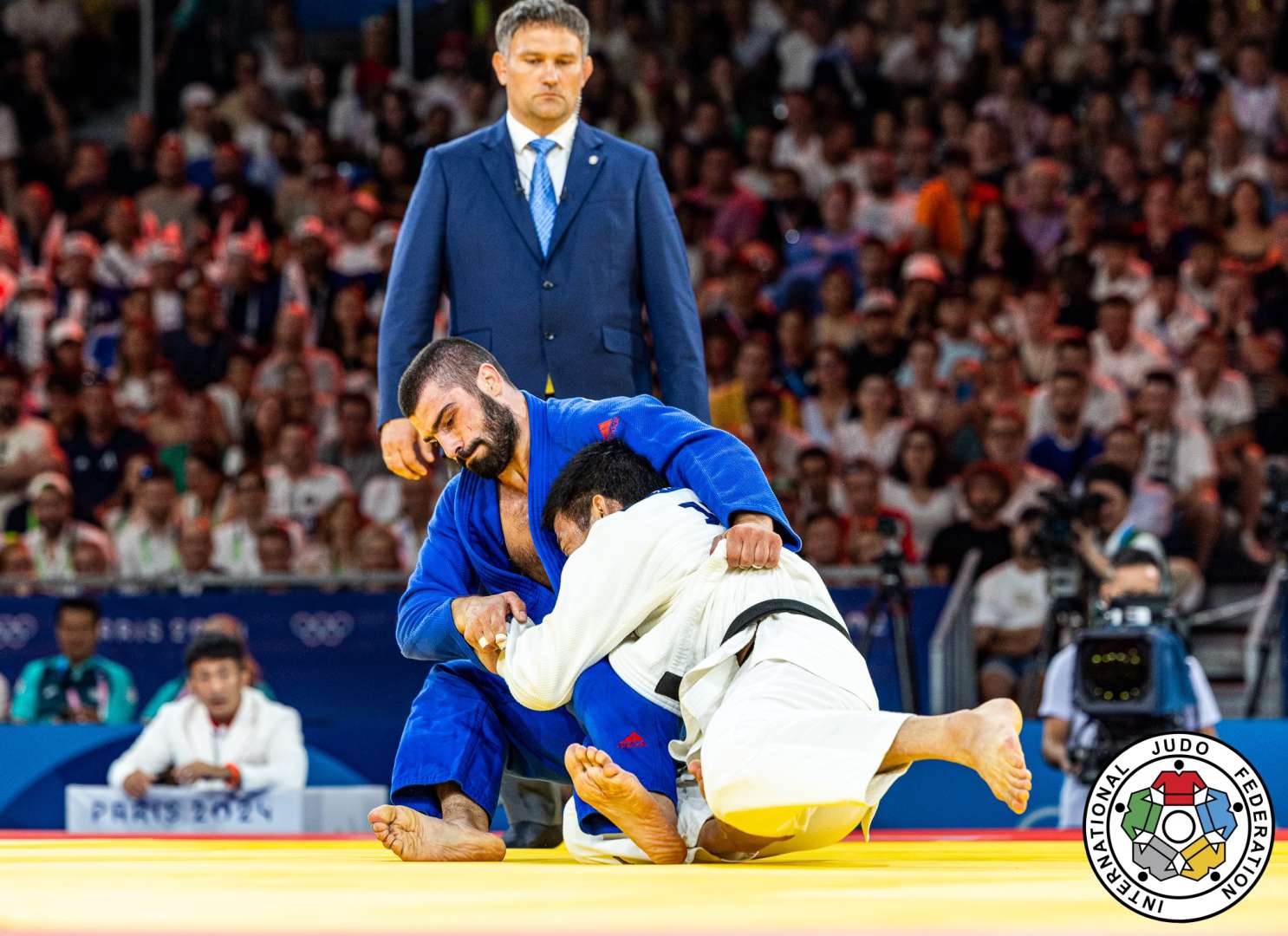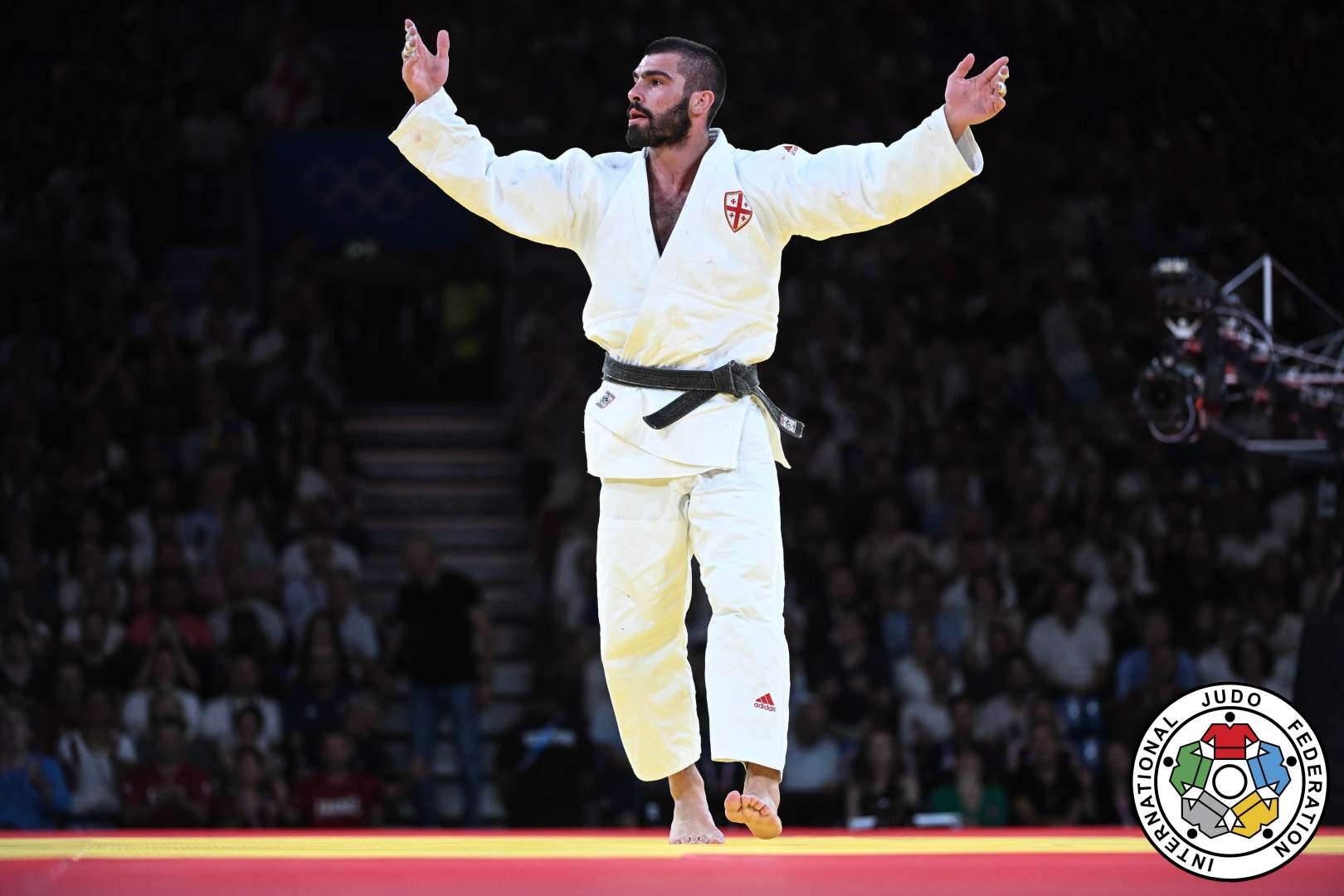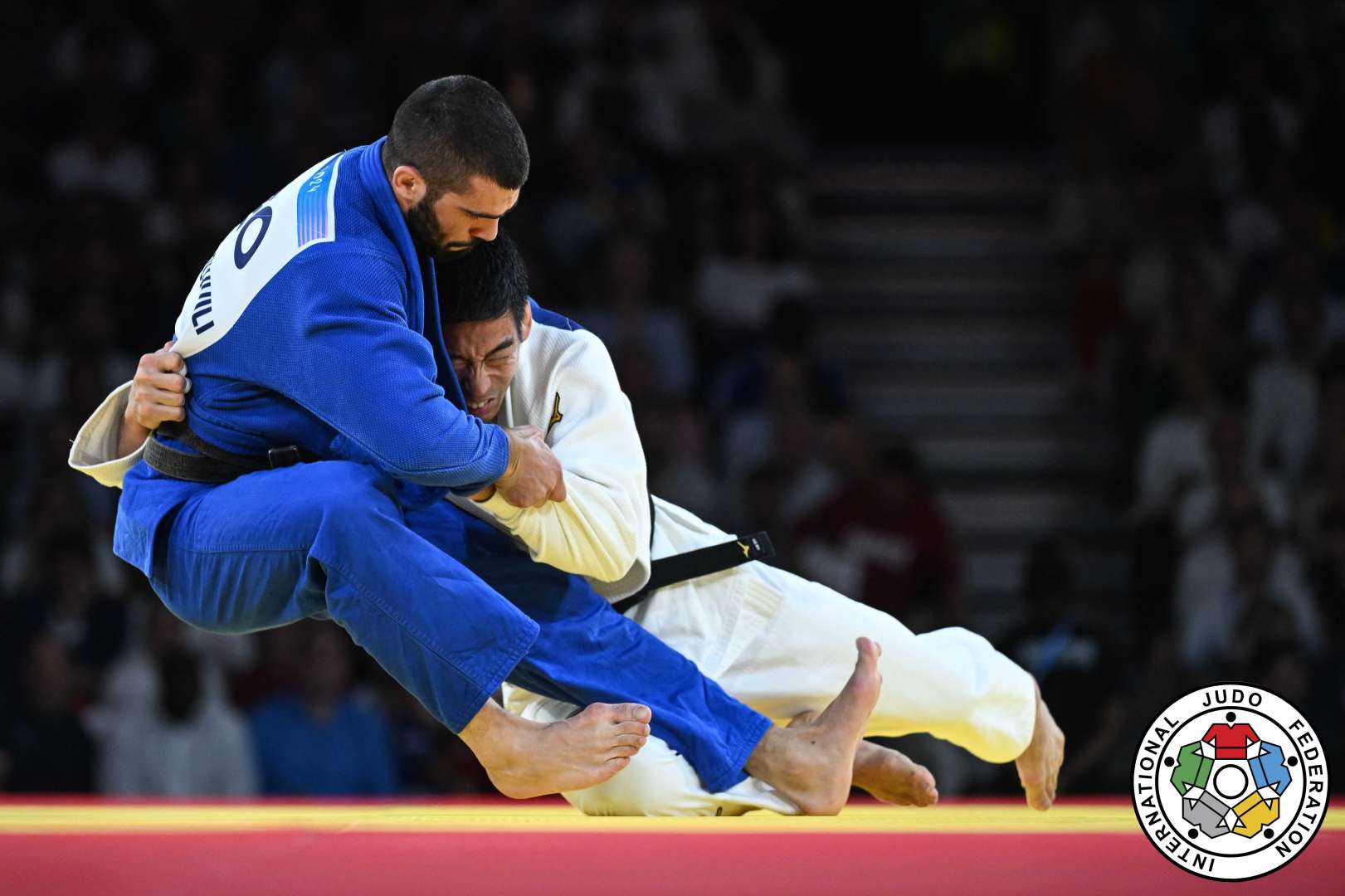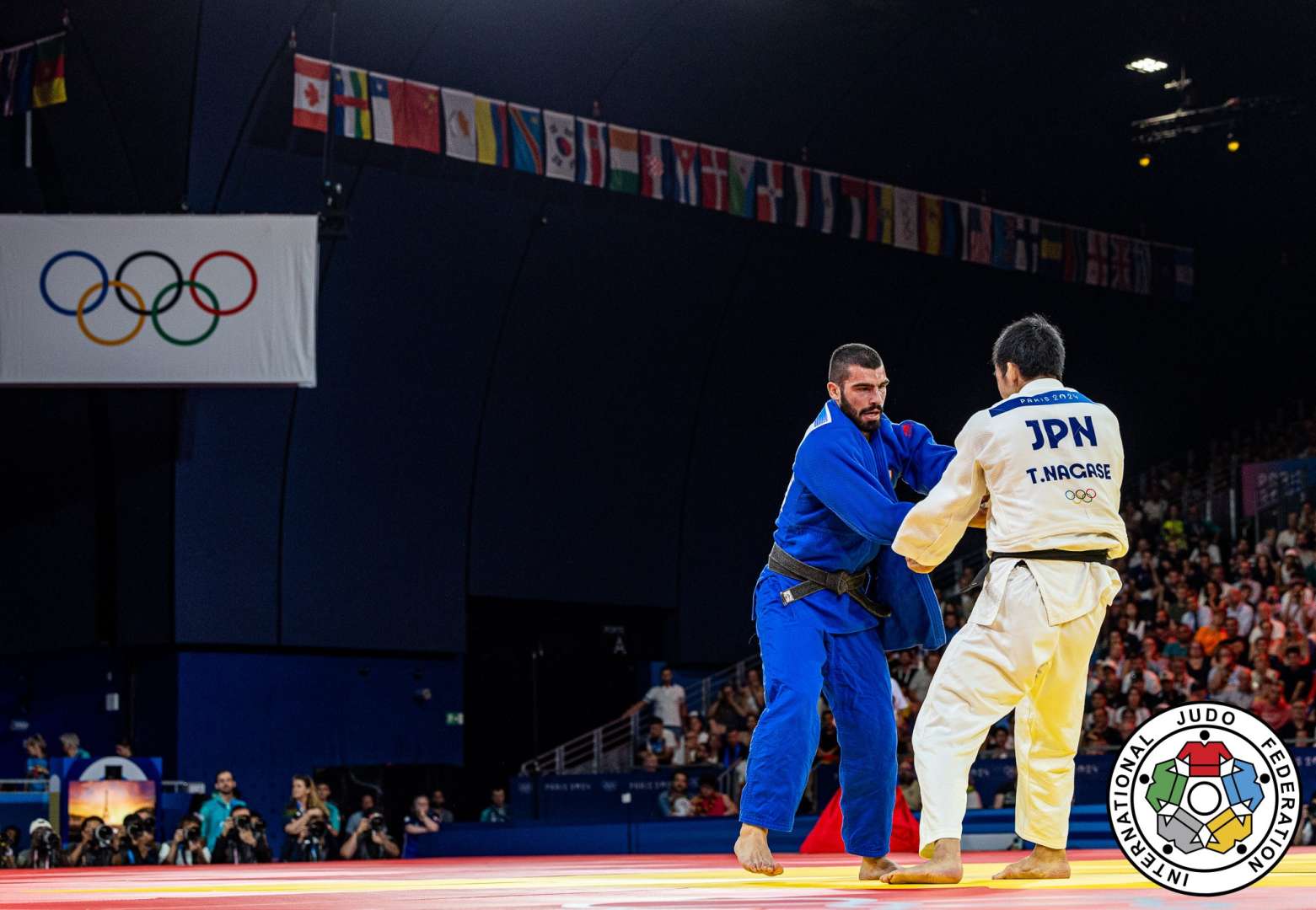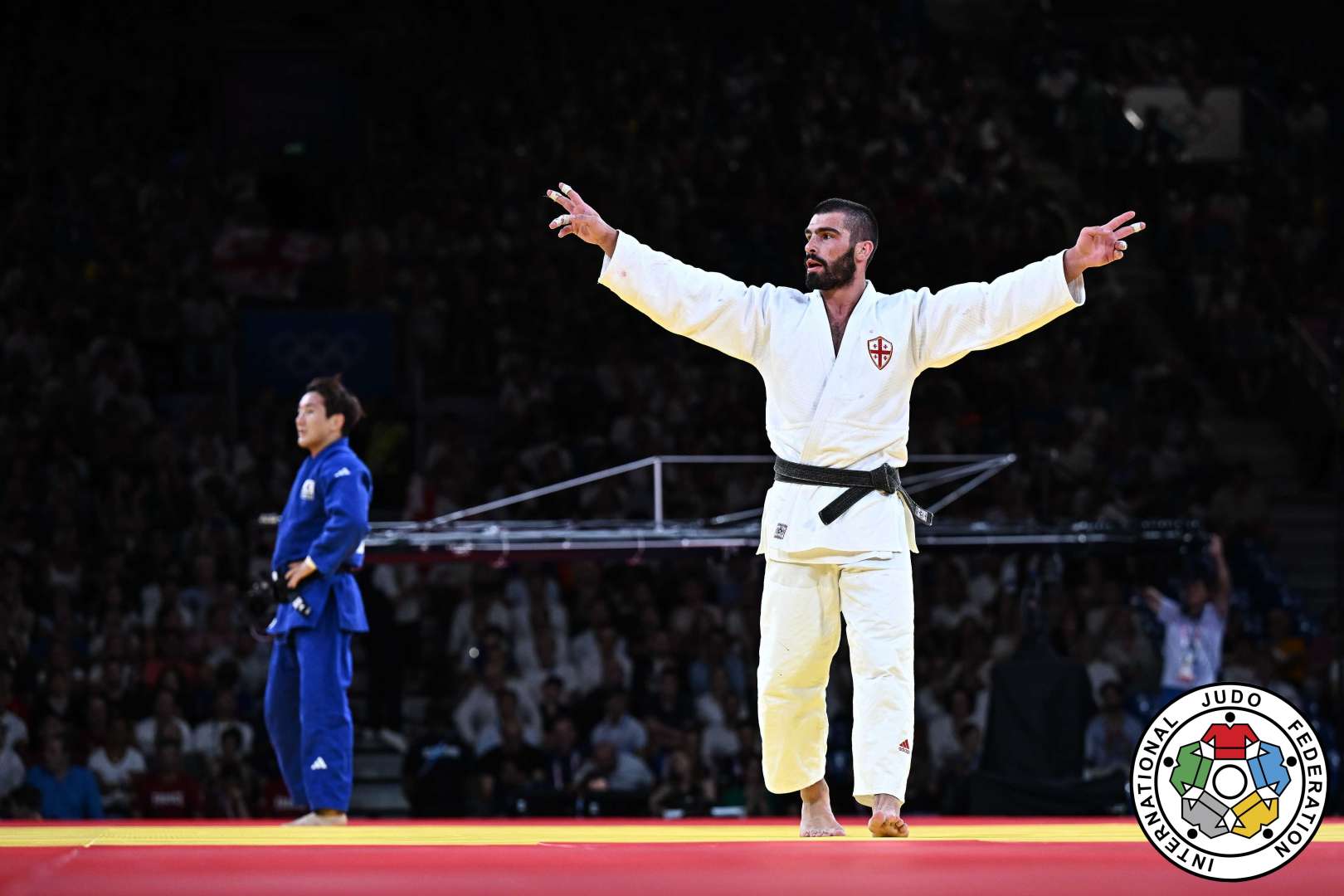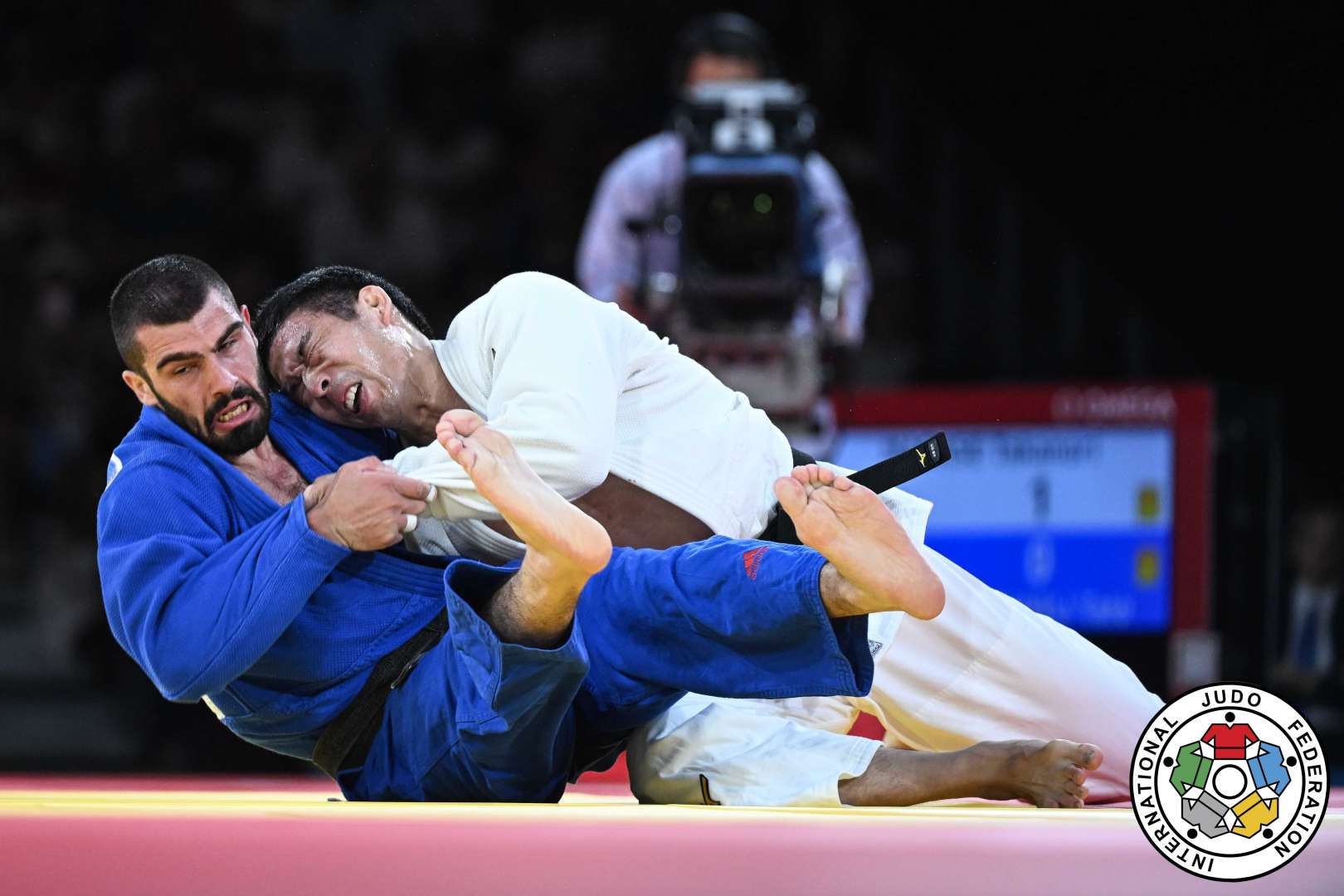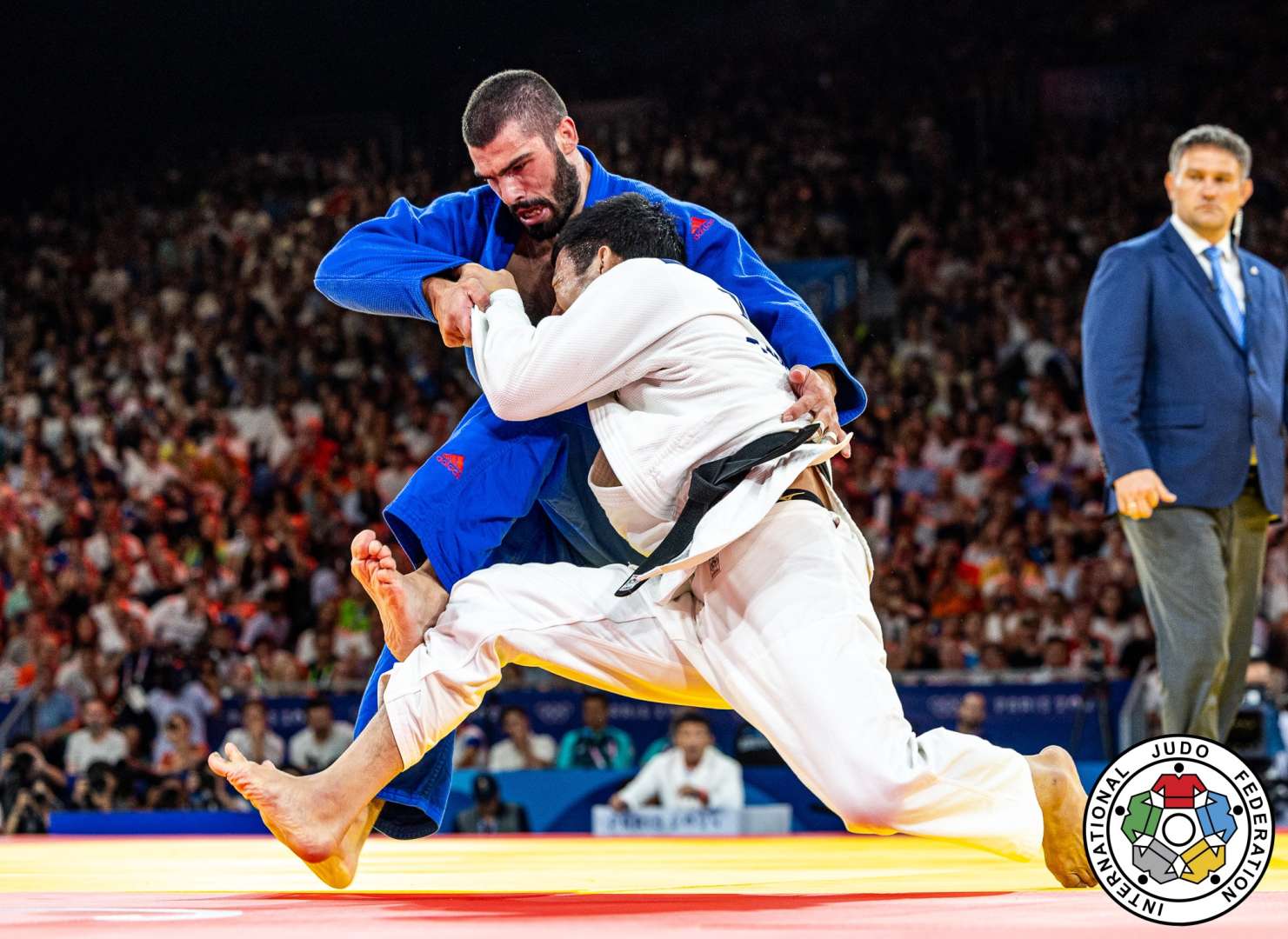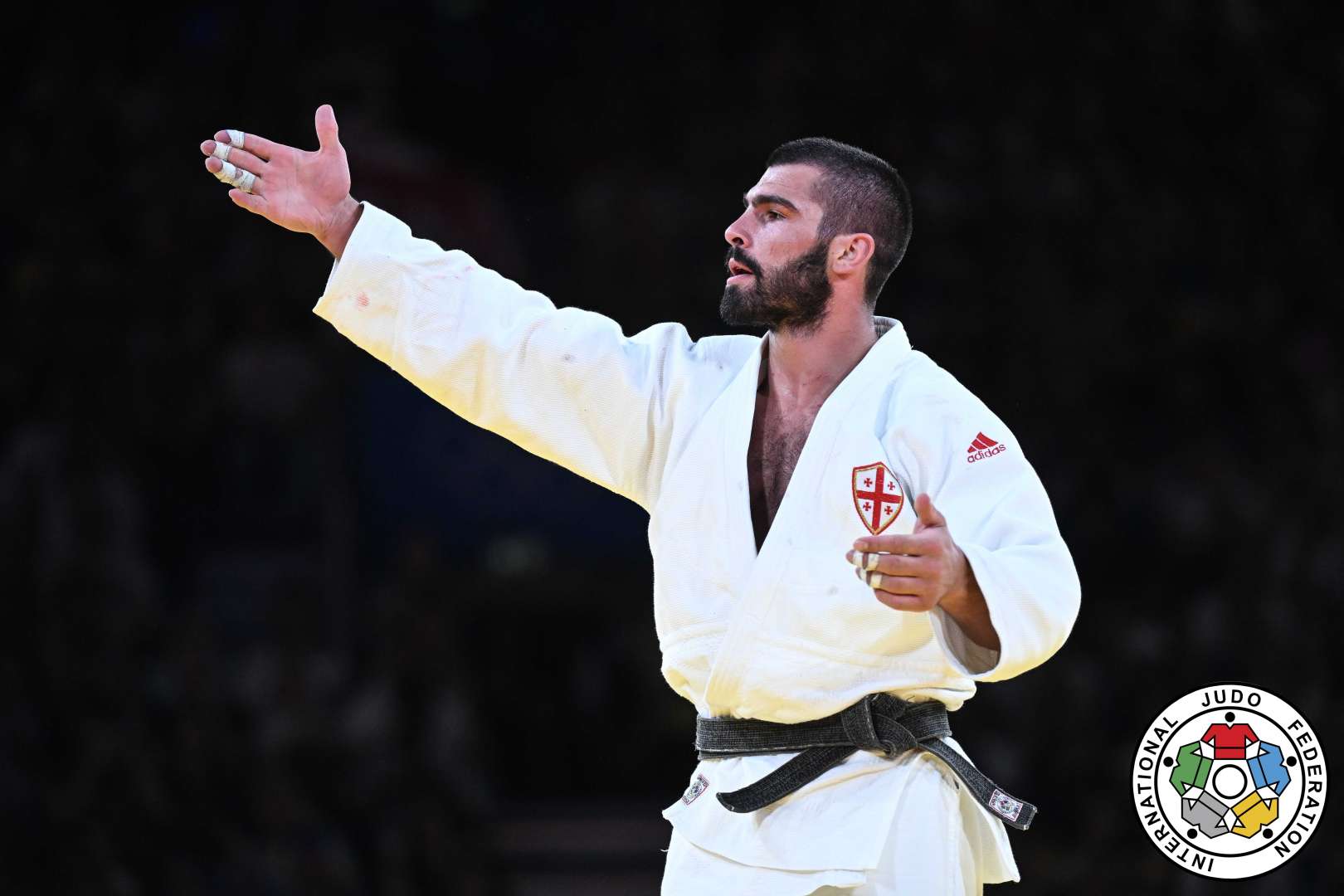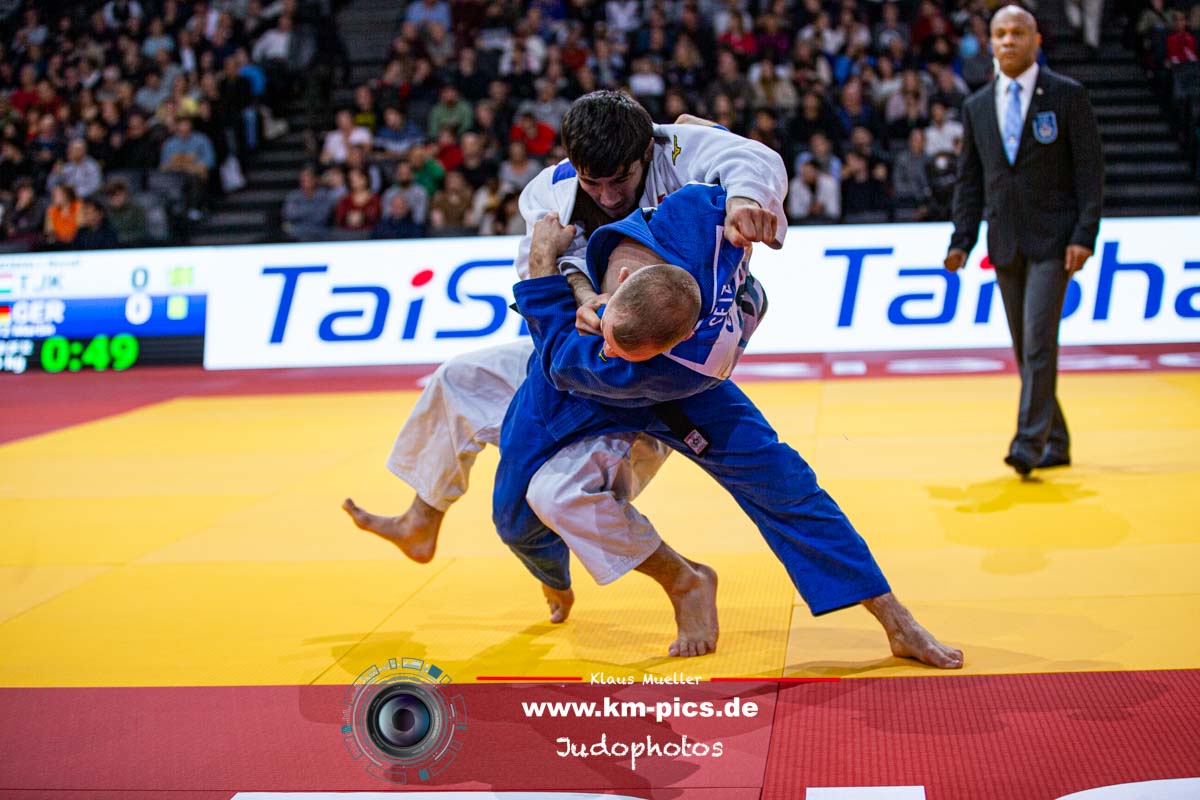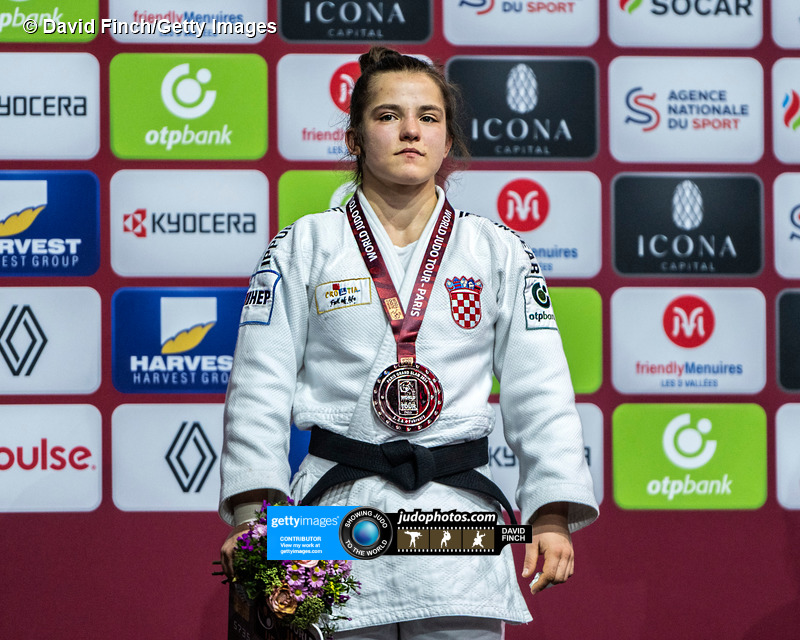Judo in the time of Covid-19: Eteri Liparteliani
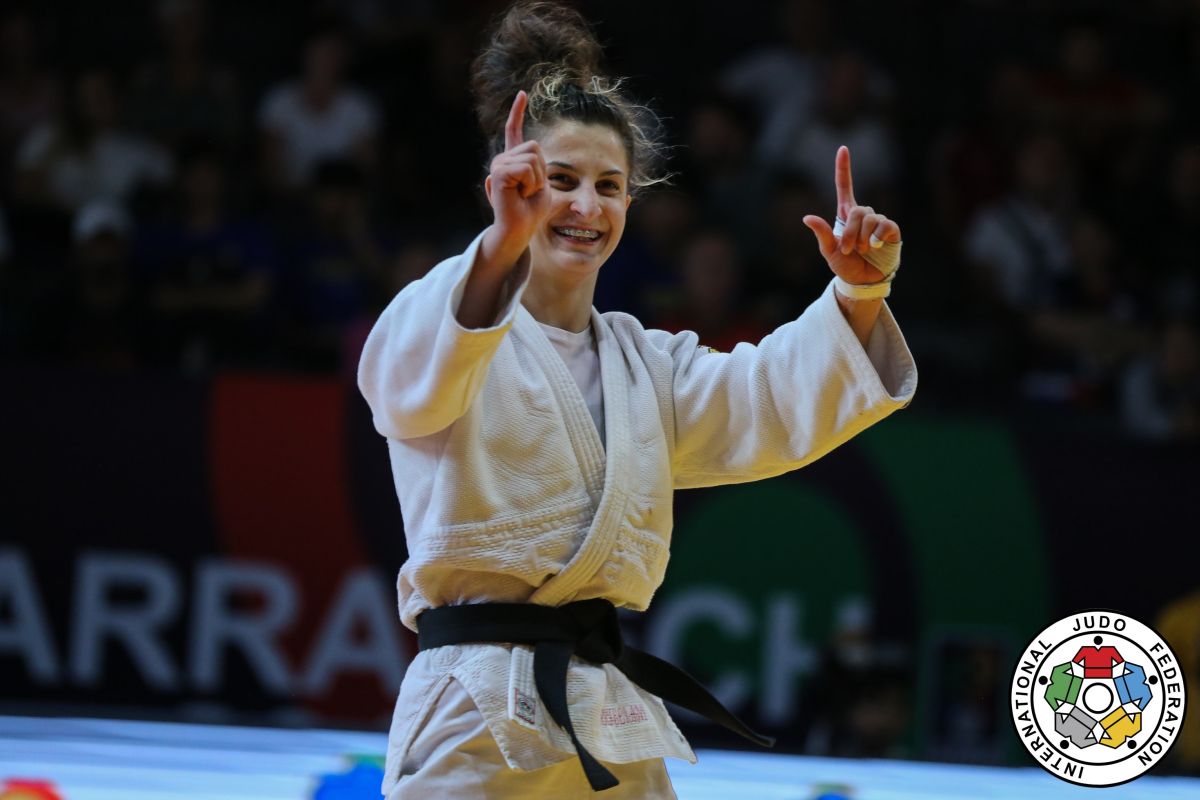
 6 May 2020 08:50
6 May 2020 08:50
 JudoCrazy by Oon Yeoh and Irakli Khmelidze
JudoCrazy by Oon Yeoh and Irakli Khmelidze
 IJF Emanuele Di Feliciantonio / International Judo Federation
IJF Emanuele Di Feliciantonio / International Judo Federation
Georgian judoka Eteri Liparteliani won the EYOF title at home in Tbilisi in 2015. Last year she took a silver medal at the 2019 European Open in Prague at Senior level and bronze at the Grand Prix in Zagreb while she still was a junior and even won the European and World title. To conclude her year, she claimed the European U23 title. That’s an amazing year and Eteri made JudoCrazy’s Oon Yeoh curious. Irakli Khmelidze helped us to pull the best answer out of her.
JIC: With a name like Eteri Liparteliani, people will naturally wonder: “Is she Varlam Liparteliani’s sister or cousin?” Are you related to him?
EL: Ha…ha… I guess it’s normal to assume that, but I have no direct blood ties to Varlam although we get along very well. You know, Georgia is not a big country. We have a population of only about four million people. The surname Liparteliani is quite common here, especially in the region of Svaneti, where I come from.
JIC: In the 1990s, there was another player named Soso Liparteliani. Any relations?
EL: In that case, yes. He happens to be my uncle. He taught me a lot and has given me a lot of good advice over the years, which I appreciate very much.
JIC: Does the name Eteri have a meaning?
EL: Yes, it means “star”.
JIC: Wow, are you a star?
EL: I think you need to believe that you are a star in order to become one, right? I’d say I’m a little star hoping to become a big star someday.
JIC: Traditionally, judo was not popular among girls in Georgia. How old were you when you started and why did your parents want you to do judo?
EL: I started taking judo classes at the age of eight. I was a very active child, full of energy. I wasn’t into dolls and all that girlish stuff. I would play with the boys instead. So, judo was a natural choice for someone like me. Actually my mother didn’t like the idea at all but my dad thought differently. He felt it was the right sport for me.
JIC: Did you like judo when you first tried it?
EL: To say that I liked it would not do justice to the way I felt. From the moment I entered the dojo, I realized this was the place I wanted to be. This is what I wanted to do. This was what I was meant to do.
JIC: Are you saying that at that incredibly young age you already knew you wanted to be become an international competitor?
EL: At the time, women’s judo was not a thing in Georgia so I had no idea that women could represent the country in judo or anything like that. I just loved the activity. I loved wrestling with the boys. I even participated in competitions against boys and I never left a competition without a medal. So, I knew I was quite good at this sport.
JIC: Is it true you moved to Tblisi at a very young age to pursue judo?
EL: When I turned 10, I wanted to take judo more seriously but where I lived, there wasn’t any suitable training opportunities, so my Uncle Malkhaz took me into his home in the city of Rustavi, which is about 25km from Tblisi. Since then I’ve been training in Tblisi.
JIC: Ten years old is quite a young age to leave home for judo. How did you cope with it?
EL: It was very difficult at first. Rustavi is about 400km from my home so it’s not like I could just visit my family on weekends. But over time I got used to it. It’s something I had to manage because I wanted to do judo.
JIC: Since you didn't actually live in Tblisi, did you travel back and forth for training?
EL: For about 10 years, I did that. But last year, based on my good results, I got more funding so I could afford to rent an apartment in Tblisi. This saves me a lot of time because I used to take public transportation and it took like one and a half hours each way.
JIC: Where does your funding come from?
EL: The Ministry of Sports and the Georgian Judo Federation really help me a lot with funding. For a long time, there was much more focus on men’s judo but in recent years, the women have started to show good results so we get more funding these days.
JIC: For a long time, you were with your uncle’s family, now you are staying alone in your apartment in Tblisi. Do you feel lonely?
EL: Not really because sometimes my mother visits me and a lot of the time I’m not there because I’m away at training camps or tournaments.
JIC: During this period of lock-down are you in Tblisi or back home with your family?
EL: I’m back in Svaneti with my parents, my two sisters and my brother.
JIC: Are you doing any training?
EL: Yes, I work on my strength and fitness at home.
JIC: Any judo?
EL: I train a little judo with my nine-year old sister Tamar! My other siblings don't do judo.
JIC: What else are you doing?
EL: I’m mainly using this time to catch up with my studies.
JIC: What are you studying?
EL: I'm a student at the Georgian State Teaching University of Physical Education and Sports. It’s a little bit difficult juggling judo and studies but I’m trying my best to cope with it because I think education is very important. My university is very understanding and they give me more time to finish my studies. They know how much training and competition I do.
JIC: Normally, in Tblisi, do you have a lot of high-level girls to randori with?
EL: Unfortunately, no. Although things have improved a lot over the years, judo is still not that popular among girls. So, I mainly train with the guys.
JIC: Is that why you are such a ferocious fighter?
EL: Maybe. But I'm aggressive by nature anyway. I may lose a match but I won't ever go down without a fight.
JIC: You do a unique kind of pick-up, which looks very Georgian but at the same time isn’t like anything other Georgians do. What do you call that technique?
EL: To me it’s the “Khabarelli” or as the Japanese call it, “Obi-Tori-Gaeshi”. I’ve loved this throw since I was young. I was so inspired by the way Shota Khabarelli did it so perfectly.
JIC: But the way you do it is not how Shota Khabarelli did it. He lifted with his right leg and threw to his right side. But you lift with your left leg and throw to your right side. How and why did you end up doing it in such an unusual way?
EL: When I first wanted to learn the Khabarelli, I watched lots of videos of people doing this throw, and then I worked on it with my personal coach, Kakha Motsradze. It’s quite a technically difficult throw and I struggled with it for a long time. I’m a right-hander so I prefer to twist to my right when doing this throw. However, I found it difficult to do when lifting with my right leg. Through trial and error, I found that lifting with my left leg was somehow easier for me than doing it the conventional way, which would be to lift with my right leg. I’m not sure why but it just feels more comfortable doing it that way.
JIC: A lot of Georgians do Chidaoba, your country’s traditional form of wrestling. Do you do Chidaoba too?
EL: Yes, since young I liked to wrestle and I like Chidaoba a lot. The Georgian style of fighting is something that I’ve always found attractive.
JIC: You had a very successful career as a junior. Now, you have just turned senior. How has that transition been?
EL: It’s very different. Seniors are much more motivated and more combative, too. So, I know that despite my past successes, winning medals as a senior is not going to be easy at all. I will have to work very hard to achieve this. Not all juniors make a successful transition to seniors but I am determined to do it.
JIC: What does judo mean to you?
EL: At first judo allowed me to fight, which is something I naturally loved to do. It’s helped me become strong, externally and internally, and it’s taught me discipline. Judo has become my way of life.
Become a JudoCrazy Patron and read all their stories here
 like
like
 share
share
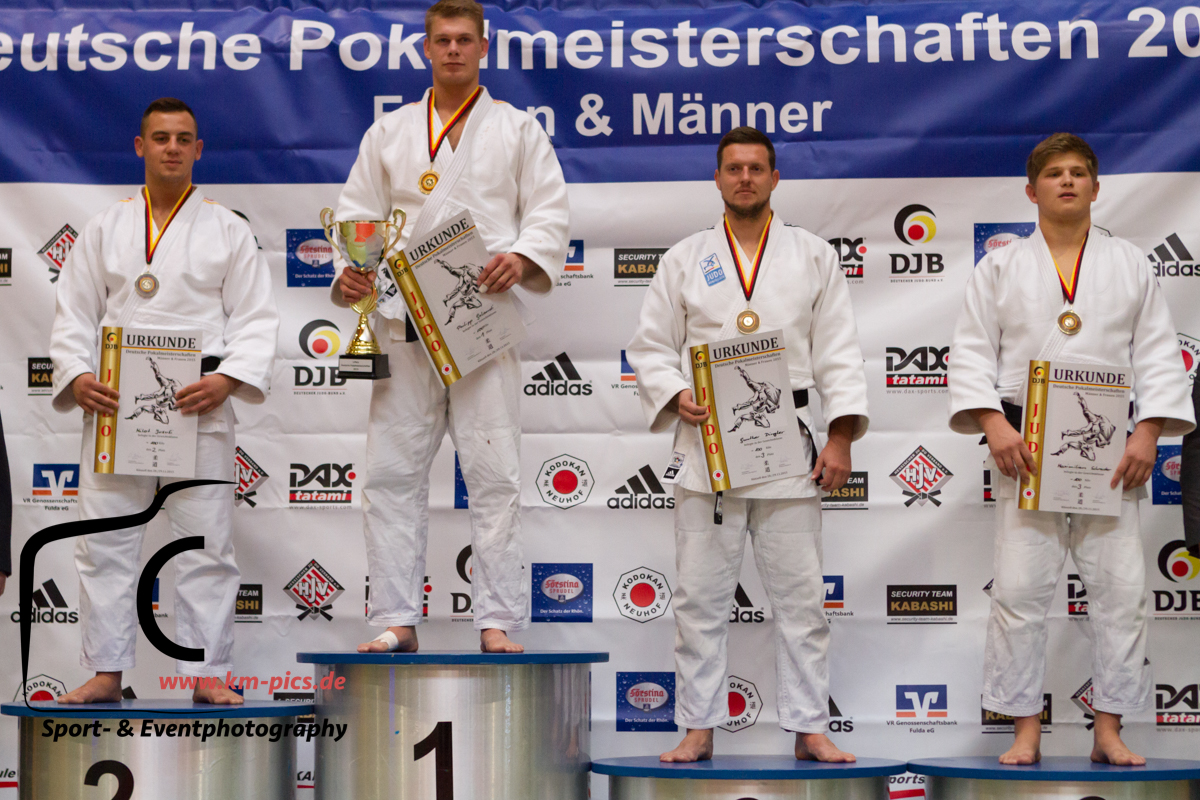
| Result | City | Date |
|---|---|---|
| 2 | Paris | 2024 |
| 1 | Abu Dhabi | 2024 |
| 1 | Zagreb | 2024 |
| 3 | Belgrade | 2023 |
| 2 | Montpellier | 2023 |
